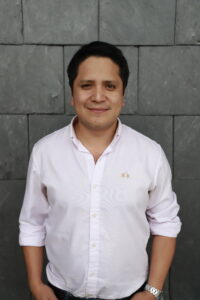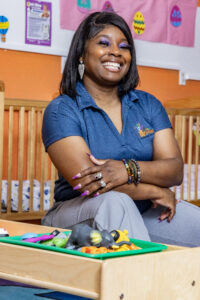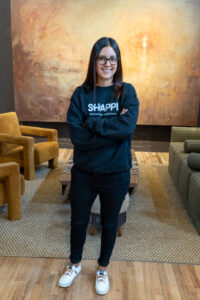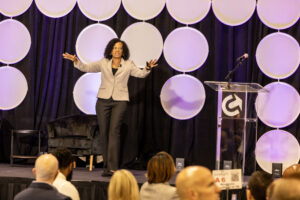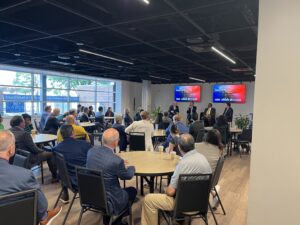Jessica York
Ring-u, a phone company founded by U.S. Military veterans Phil Sieg and Mike Harrison, combats the headache they went through searching for an affordable phone system for their own small businesses.
The plug n’ play phone system comes at a price thousands less than the average, with a no B.S. promise guaranteeing transparent pricing with no contracts.
Trend: How did you two meet? What common interests do you share?
Phil: Ten years ago, I went online looking for some local geeks to help me with an idea I had, to see if it would prove to be a good business. I found a local mailing list online called Chugalug.
Mike: It’s the geekiest group of geeky people in town.
Phil: Mike had founded that group and maintained the mail sever, so I sent him an email and told him what I was trying to do. He welcomed me to the group and gave me some people to contact who knew about what I was interested in. So I became a member of Chugalug, and eventually met Harrison in person at one of the lunches—
Mike: —Chuga-lunches.
Phil: Yeah, so Harrison and I got to be friends through Chugalug, and have known each other since. I sold a company last year and needed to do something new. The timing was good for Harrison, and that’s how we got to where we’re at with Ring-u.
Trend: Do any of your past military skills come into play running your business?
Mike: Every day. I got my technical start in the military. They teach a very practical approach to hard, technical subjects—in comparison to schools and colleges that tend to just teach theory or esoteric angles. In the military it’s all about getting something done efficiently.
Phil: The military also teaches that it’s easier to not quit, no matter how hard what you have to do is. It’s easier to power through the rough patches, and potentially fail, than it is to quit and know that you didn’t really give it 110 percent of your effort.
Trend: What can a good phone system do for a company?
Phil: A good phone system is a productivity multiplier.
It answers the phone without anything ringing in the place of business, and sends the call to the person that can actually help them. Depending on what type of business you are—particularly if you have employees who have to concentrate on complex tasks or dealing with customers—it means that a phone doesn’t ring and disturb someone being productive, unless the call needs to go to their desk.
In other words, a good phone system tames all of those unruly phone calls, and puts them where they need to go. This is good for both the people in the business and the people who are calling the business. No caller wants to talk to three or four people before they get to the person they really need.
Trend: How long did it take you to build your first phone system?
Mike: The first one that I built in 1999 took me days–and that was just to get the absolute basics working.
But now, with our Hello Hub, the customer can unbox the unit and have it working in about 15 minutes. We’ve made it that simple.
In fact, I recently had a customer who called to have me walk him through putting it together, and I just sat there and listened until I heard him say, “Well, this is really easy. Why did I call you?” And now he’s up and running making and receiving calls through his Ring-u system.
Trend: What positive impact does your phone system have on a small business?
Mike: Our system has features that normal, old-fashioned phone systems don’t have. With it, our customers will get digital receptionists, call forwarding, and the ability to transfer calls inside the business or to mobile workers on their cell phones.
In fact, we recently picked up a customer who figured out that they could transfer a call from phone to phone—this was a bunch of 20-year-olds in a call center office for a fast food franchise—and they called us shouting, '”That is so cool!” Because they hadn’t been able to do that before getting our phone system. They’d literally been having to call another phone number, or they would hand the phone over to somebody.
So the real impact is business process improvement for small companies. Our system does things like record all calls made to customer service, make sure that people get answered quickly and send voicemails to email.
Trend: Who do you end up calling and taking to the most from work?
Phil: Our phone system is inbound for our customer base to contact us, and we love it when the phone rings—because it’s either someone who has seen us and has questions, or somebody who owns our product and has called to ask, '”Hey, could you help me a little bit with set-up?” And we always love to answer, “Absolutely!”
Mike: We don’t have to talk to robo-dialers and spammers because our system protects us from them. The robots can’t get beyond our phone system’s automated receptionist. So we, and our customers, never have to talk to or deal with phone spammers at work.
For more information, visit ring-u's site, Twitter and Facebook.
